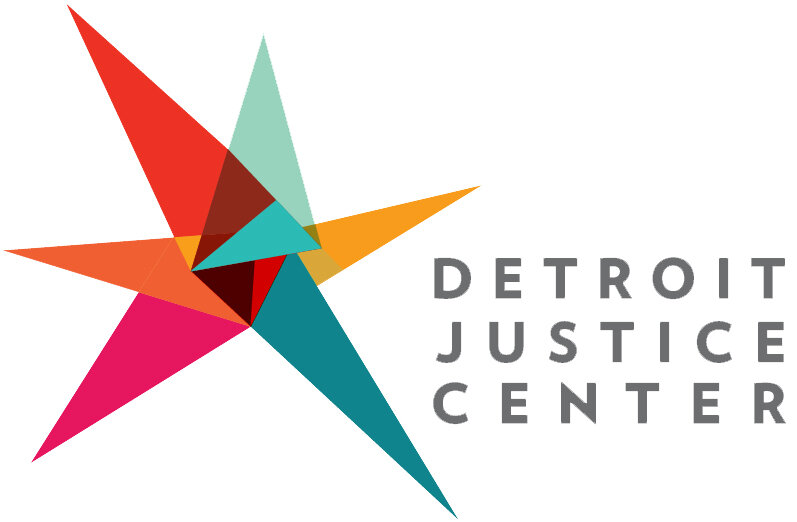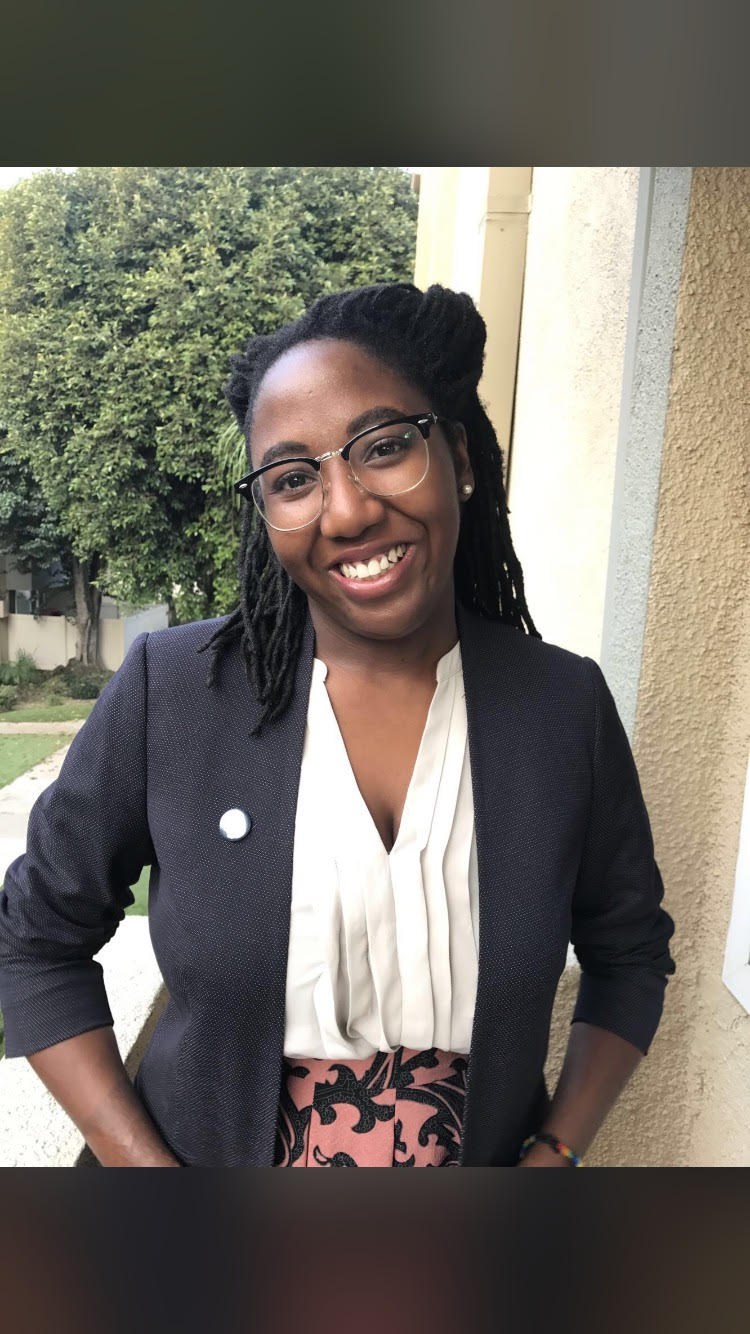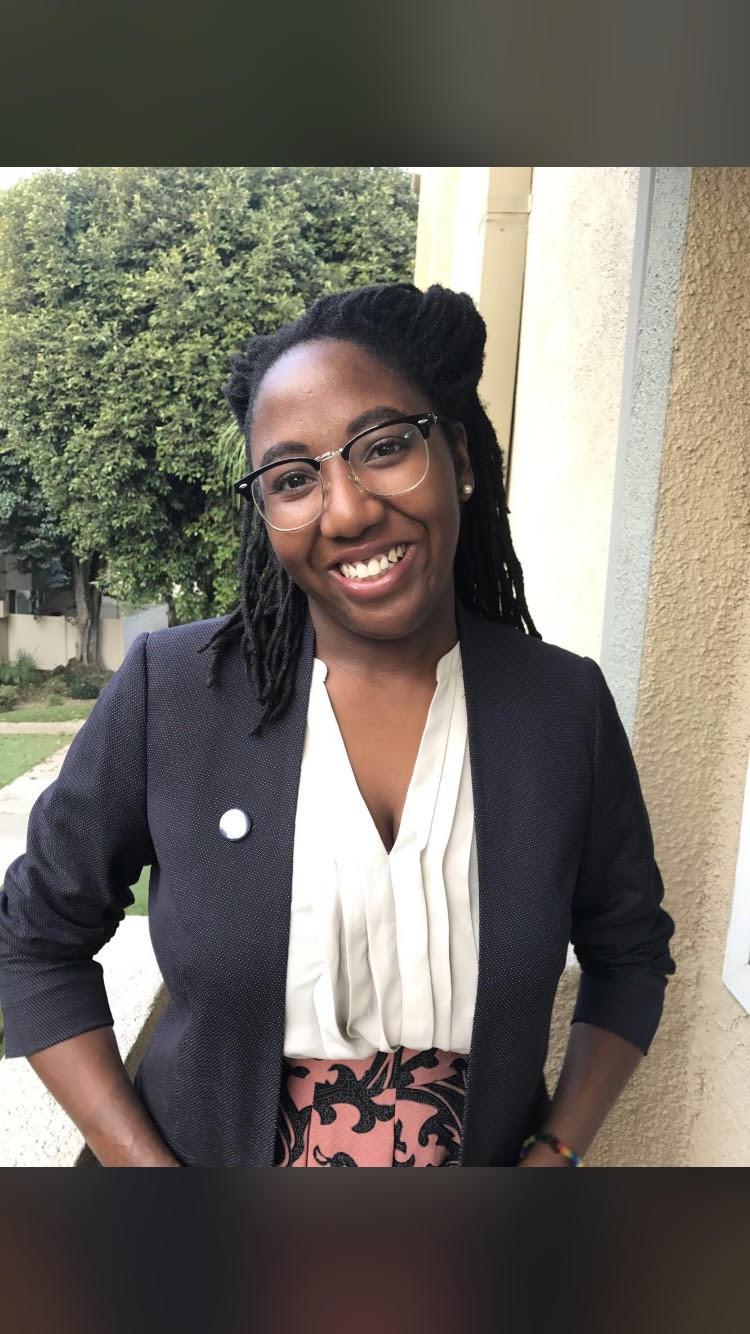Casey Rocheteau: So you came back to Detroit from DC, but how did you find out about the Detroit Justice Center?
Tiffany Mott-Smith: I grew up here and I stayed here at length, however, I hadn’t consistently lived here since I was 17. I’ve come home in spurts, so staying for a while and then running off. One of those spurts, the last time I was living here, I was part of an organization called the Young Nonprofit Professionals Network, and I actually served on their board. I reached out to a colleague who served on the board with me when I was preparing to come back, and she was the one to tell me about DJC. She said there’s this organization that’s run by this amazing person, and she sends me all this stuff about Amanda. So my colleague had said, “the Detroit Justice Center is looking for someone with experience in development but also tuned into restorative justice from a racial lens and this has you written all over it.” I was looking for something with longevity because I had worked for nonprofits in DC, large and small, one literally being the federal government, and it felt like a house in the neighborhood, but not home. I wanted to come home, to Detroit, and to be a part of what Detroit is now. By the time I was coming of age, the downturn had already started to happen. And then by the time I was really ready to get out in the workforce, it had dropped off completely. This was a few years before the bankruptcy, when things were so bad we couldn’t quite name it yet. To that end, a conversation like what we have at DJC specifically around prison abolition and anti-mass incarceration, you couldn’t have it yet. We were watching them roll through the hood and just lock everybody up. Nobody was willing to have a conversation about how messed up it was because we’re still hanging on to respectability in a way that wasn’t serving us well.
CR: What are the three core things about the Detroit Justice Center that you want people to know?
TMS: I think something that is really meaningful and important as a Black Detroiter is that as an organization, we have a commitment to giving Black folks a voice in leadership. This is not an organization where the people who are doing the client work and the clients are two completely different demographics. We’re also very committed to partnerships with organizations who have been doing this work at length. As much as we are a new organization, our 100+ partnerships are all organizations that are based in Detroit and have been doing this work at length. That to me is very meaningful. So often, especially when I was growing up, there were these organizations that were not even from Detroit and were not reflective of the people they were serving. In those spaces, it can be very difficult to speak truth to power. From a development angle, I want funders to start investing in people who live and give here because it’s a spirit that we lost. It cannot be a situation of “hold still while I save you.” That doesn’t work, and changing the conversation around that is imperative. I specifically say Black because this is a city that is still very much majority Black, so it’s important to include us in the conversation and leadership. The government can’t serve all the folks that need services, and it’s been kicked down to the community-based organizations, which is such an amazing opportunity, for nonprofits in particular. So if you’re going to be a nonprofit that’s serving folks here in Detroit, predominantly low-income folks, then those folks are probably going to be Black. Given that is the makeup of the city and the folks you’re working with, it means there needs to be Black folks at every level of organizations.
Another thing that I think is important, although less altruistic, is that one of the reasons I kept leaving the city is that there simply weren’t jobs here. I encountered this with so many folks who grew up here—the idea of not being able to stay in your hometown because you couldn’t actually feed yourself if you did was heartbreaking. Also, as a Black queer person, coming back to Michigan—which is a state that is not super friendly when it comes to legislation—there aren’t housing protections, we don’t have the same employment protections—I needed to go someplace where I would have that.
The third thing is that we are working to change the conversation around what it is to be in anti-mass incarceration work, in Black liberation, and in restorative justice. As we say in our mission, it’s impossible to approach poverty in any way without remedying the effects of mass incarceration. We have to tackle that, because people are being kept out of the formal economy, and we’re missing whole chunks of families here in Detroit.
CR: What is one thing that has surprised you coming back home this time?
TMS: I’m going to go with two things—big and then small. I think I froze Detroit in time a little bit, so it’s surprised me coming back that I now live really close to where I spent most of my time growing up, and now there’s a coffee shop and fancy restaurants with cloth napkins. I can get a golden milk latte on my way to Bikram yoga and there’s vegan soul food and I’m just like “are we still on the Eastside?!?” That has been jarring and also amazing. I can remember being on Woodward and having it be a ghost town in the middle of downtown, and now there’s going to be an H&M in the building where my mom lived. And on a somewhat smaller note, there’s also been a dramatic shift in how the city treats gay people. I couldn’t imagine growing up that I would be able to walk down the street in my neighborhood hand in hand with my partner without having to worry at all. I don’t think that’s true for the entire LGBT community, but I think it’s gotten easier for cis gay people to exist in this space.


